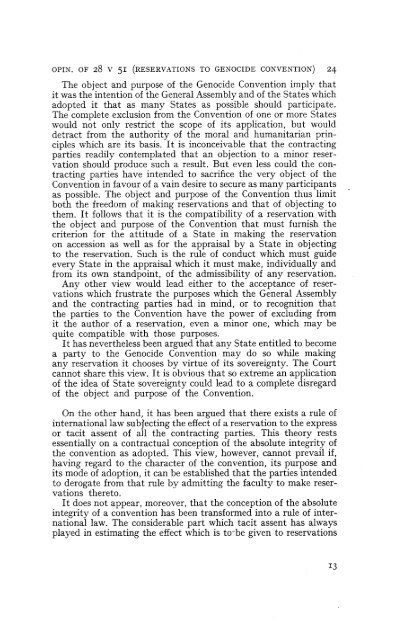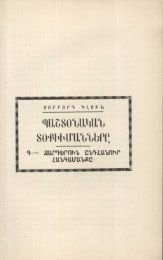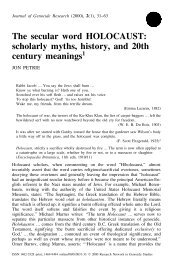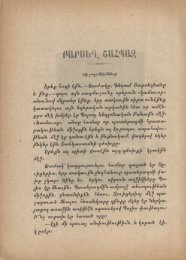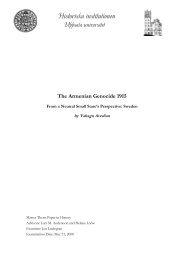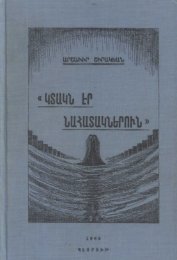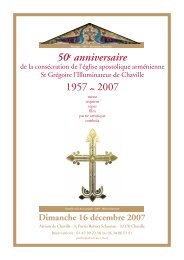Avis consultatif du 28 mai 1951 - Cour international de Justice
Avis consultatif du 28 mai 1951 - Cour international de Justice
Avis consultatif du 28 mai 1951 - Cour international de Justice
- No tags were found...
Create successful ePaper yourself
Turn your PDF publications into a flip-book with our unique Google optimized e-Paper software.
The object and purpose of the Genoci<strong>de</strong> Convention imply thatit was the intention of the General Assembly and of the States whichadopted it that as many States as possible should participate.The complete exclusion from the Convention of one or more Stateswould not only restrict the scope of its application, but would<strong>de</strong>tract from the authority of the moral and humanitarian principleswhich are its basis. It is inconceivable that the contractingparties readily contemplated that an objection to a minor reservationshould pro<strong>du</strong>ce such a result. But even less could the contractingparties have inten<strong>de</strong>d to sacrifice the very object of theConvention in favour of a vain <strong>de</strong>sire to secure as many participantsas possible. The object and purpose of the Convention thus limitboth the freedom of making reservations and that of objecting tothem. It follows that it is the compatibility of a reservation withthe object and purpose of the Convention that must furnish thecriterion for the attitu<strong>de</strong> of a State in making the reservationon accession as well as for the appraisal by a State in objectingto the reservation. Such is the rule of con<strong>du</strong>ct which must gui<strong>de</strong>every State in the appraisal which it must make, indivi<strong>du</strong>ally andfrom its own standpoint, of the admissibility of any reservation.Any other view would lead either to the acceptance of reservationswhich frustrate the purposes which the General Assemblyand the contracting parties had in mind, or to recognition thatthe parties to the Convention have the power of excluding fromit the author of a reservation, even a minor one, which may bequite compatible with those purposes.It has nevertheless been argued that any State entitled to becomea party to the Genoci<strong>de</strong> Convention may do so while makingany reservation it chooses by virtue of its sovereignty. The <strong>Cour</strong>tcannot share this view. It is obvious that so extreme an applicationof the i<strong>de</strong>a of State sovereignty could lead to a complete disregardof the object and purpose of the Convention.On the other hand, it has been argued that there exists a rule of<strong>international</strong> law subjecting the effect of a reservation to the expressor tacit assent of al1 the contracting parties. This theory restsessentially on a contractual conception of the absolute integrity ofthe convention as adopted. This view, however, cannot prevail if,having regard to the character of the convention, its purpose andits mo<strong>de</strong> of adoption, it can be established that the parties inten<strong>de</strong>dto <strong>de</strong>rogate from that rule by admitting the faculty to make reservationsthereto.It does not appear, moreover, that the conception of the absoluteintegrity of a convention has been transformed into a rule of <strong>international</strong>law. The consi<strong>de</strong>rable part which tacit assent has alwaysplayed in estimating the effect which is to-,be given to reservations


